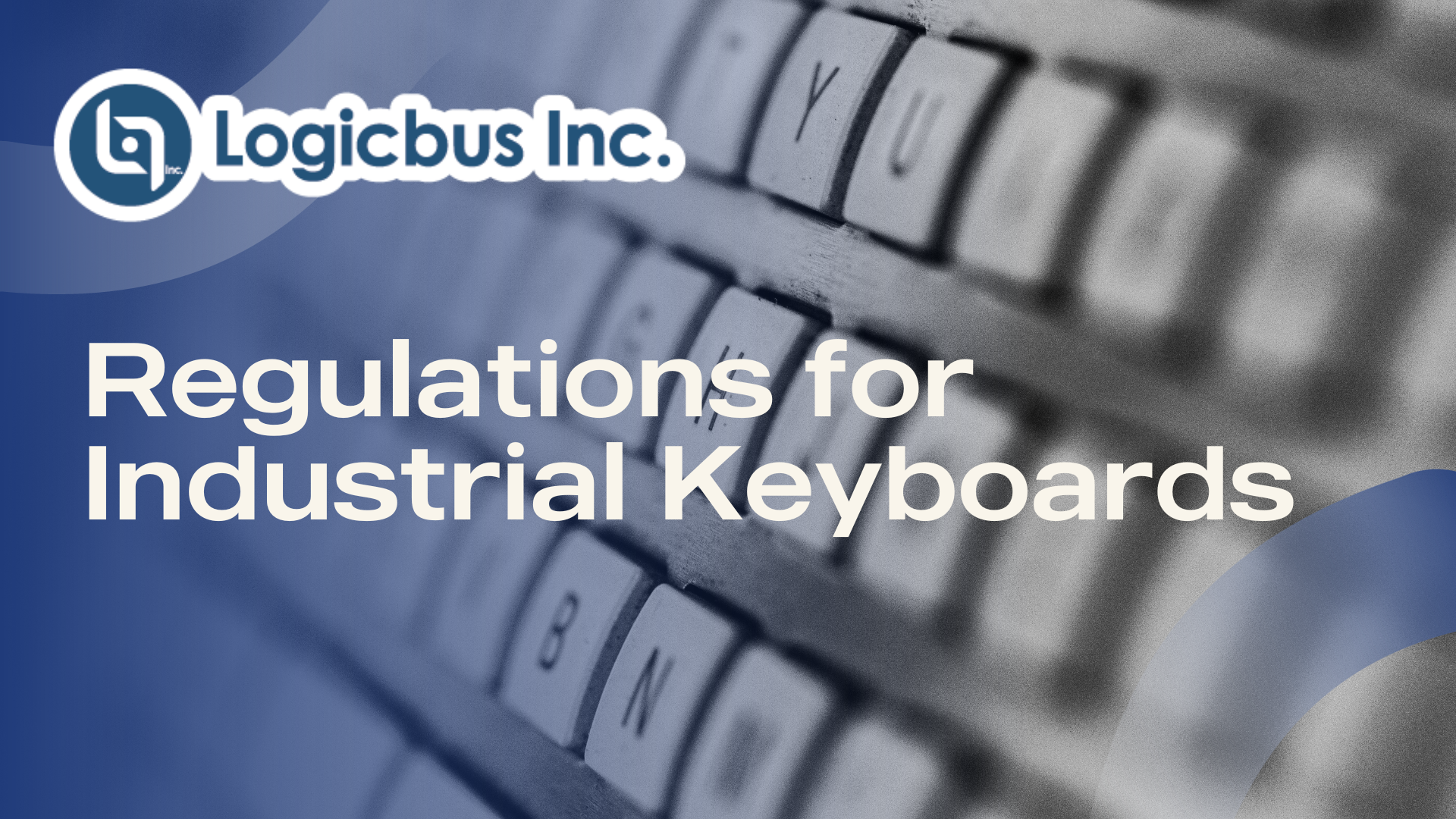Regulations for Industrial Keyboards: Ensuring Reliability in Challenging Environments
Industrial keyboards play a vital role in demanding workplaces where durability and resilience are paramount. They need to be exceptionally strong and long-lasting to withstand these extreme conditions. Specific protection regulations ensure they meet these standards. These rules guarantee that the keyboards are sturdy, robust, and function correctly in challenging situations. In this blog, we’ll take a closer look at the key standards that apply to these specialized keyboards.
Anti-vandal Keyboards:
Endurance and Durability in Hostile Environments.
Anti-vandal keyboards are crucial in settings exposed to extreme conditions or physical abuse. Constructed with robust materials such as stainless steel, these keyboards are virtually indestructible. Designed to endure hostile environments, their resistance to vandalism and weather makes them ideal for public terminals and outdoor settings.

IP Ratings:
Protection Against Solids and Liquids.
The IP standard is vital for determining an industrial keyboard’s resistance to elements like dust, liquids, and other external factors. Comprising two digits, the first indicates protection against solids, and the second, against liquids. Industrial keyboards typically have an IP65 or IP68 rating, ensuring resistance to dust and the ability to withstand high-pressure water jets or prolonged immersion in liquids.
IP65: The “6” in IP65 means that the device is fully protected against the ingress of dust. The “5” indicates that the equipment is protected against low-pressure water jets from any direction, implying it is resistant to splashes or light rain, but cannot be submerged in water.

IP68: With IP68, the “6” continues to indicate complete protection against dust. The main difference lies in the water resistance level. The rating “8” indicates that the device can be continuously submerged in water at specific depths according to the conditions set by the manufacturer. Overall, a device with IP68 can withstand prolonged submersion at a specified depth, making it more water-resistant than a device with IP65.
ATEX Regulations:
Safety in Potentially Explosive Environments.
ATEX regulations focus on protecting workers operating in potentially explosive environments. Industrial keyboards compliant with these regulations are specially designed for hazardous settings, ensuring they’re intrinsically safe and do not produce sparks or temperatures that could trigger explosions. These keyboards are vital in industries like chemical, petrochemical, or areas with flammable gases.

Benefits of Compliance with These Regulations
Complying with industrial keyboard protection standards brings several significant benefits:
Enhanced Durability: Keyboards meeting these regulations are typically more robust and durable, reducing maintenance and replacement costs.
Personnel Safety: Adhering to safety standards minimizes the risk of workplace accidents, subsequently reducing downtime and associated costs.
Efficiency and Productivity: Keyboards designed for industrial environments provide more reliable operation, enhancing operational efficiency.
In Conclusion
Regulations for industrial keyboards are crucial to ensure safety, durability, and efficiency in challenging work environments. Adhering to these rules safeguards both personnel and equipment while also contributing to productivity and efficiency in industrial operations.
In the modern era, where technology plays a critical role in industrial environments, the design and compliance with regulations for industrial keyboard protection are essential aspects to ensure proper functioning and safety in these demanding settings.
If you have more questions or need further advice on industrial keyboards or other technology-related topics, please do not hesitate to contact us. We are here to assist you.
www.logicbus.com




sales@logicbus.com | support@logicbus.com | +1 619 616 7350 | Start conversation

